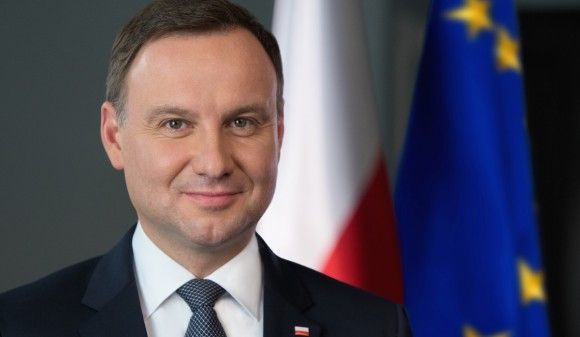- WIADOMOŚCI
Italian Cooperation Proposal In The Domain of Space Technologies. Cosmo-SkyMed and Beyond.
A two day space seminar, involving scientists from Italy and Poland, was organized at the Polish Ministry of Higher Education and Science. The meeting constituted an opportunity to summarize the collaboration between Warsaw and Rome undertaken so far, within the area of space research. The participants also focused on definition of a variety of new fields, within which joint initiatives could be realized. Piotr Dardzinski, Undersecretary of State at the Polish Ministry of Higher Education and Science, professor Marek Banaszkiewicz, President of the Polish Space Agency, and Roberto Battiston, President of the Italian Space Agency participated in the event, among other officials. Battiston presented a variety of areas within which Polish entities could collaborate with the Italian organ.
A two day space seminar, involving scientists from Italy and Poland, was organized at the Polish Ministry of Higher Education and Science, between 27th and 28th April. During the event, speeches were given by, inter alia, Piotr Gardzinski, Undersecretary of State at the Polish Ministry of Higher Education and Science. Gardzinski noted that a tradition is starting to emerge, within the scope of joint meetings involving the representatives of Italy and Poland, dating back to 2013. He also expressed the Poland’s will to continue the collaboration programme, under the jurisdiction of PM Beata Szydło, in the light of the fact that space technology has a high value for creation of an innovative economy. Vice-Minister also hopes that joint efforts may be expanded in areas such as space missions, propulsion systems, nano-satellites, radio signals detection, Earth observation and satellite navigation systems. Gardzinski also stated that the Polish research institutes, such as the Military University of Technology, Warsaw University of Technology or AGH University of Science and Technology, are all open to get involved in a dialogue with the Italian partners.
Alessandro De Pedys, Italian Ambassador to Poland, stated that the outer space is a good field for collaboration between the two nations, within the framework of the currently pursued ESA programmes, such as Copernicus or Galileo. President of POLSA, Professor Marek Banaszkiewicz talked about the opportunity to use the Italian experience, to translate it into effort within the scope of expansion of the Polish space sector. He also recalled the projects within which both countries collaborated, such as the 2003 Mars Express mission, undertaken by the European Space Agency. Banaszkiewicz also referred to the fact that there is a need of creating a national space programme, which would accelerate expansion of the Polish space industry. He hoped that such step would be as profitable for Poland, as the Italian satellite programmes were for Rome.
Roberto Battiston, President of the Italian Space Agency, talked about the history of the Italian space research, dating back to 1950’s. He also discussed the collaboration with the European Space Agency. Italy has been an active member of that organ since 1975. Catalogue of the areas, within which Italy hopes to expand collaboration with Poland, constituted the most interesting part of the presentation. Among these fields, Earth observation domain was ranked first – this is related to the fact that Poland has been making contributions to the Cosmo-SkyMed programme since 2014.
Thanks to this initiative, Warsaw is able to obtain radar data from the Cosmo-SkyMed satellites, for military purposes. Within that area, Italian Space Agency (Agenzia Spaziale Italiana) is wanting to get the Polish partners interested in using the above system also for the research purposes. Within the framework of the ESA Copernicus programme, the Italians would like to jointly develop projects in which Sentinel satellites data processing software would be created.
When it comes to the launch vehicle-related projects, President of the Italian Space Agency stated that creation of a new rocket engine for the upper stage of the Italian Vega rocket would be an interesting field in which both nations could initiate a relevant cooperation. Secondly, within the same area, Italy would like Poland to participate in the PRIDE programme, pertaining to an experimental unmanned shuttle which is being developed by ESA.
Other domains of potential collaboration include aerospace technologies such as lasers, electronics and research and industry exchange.
On the second day of the seminar, the industrial collaboration undertaken by both countries so far was thoroughly discussed. Then presentation of the successful projects took place. Representatives of several Polish companies, such as Creotech Instruments, Astronika, Sener Polska and SKA Polska, have presented their programmes, using real life examples, highlighting the benefits that could be brought by knowledge and experience exchange, within the scope of joint, bilateral collaboration.














